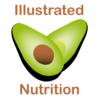Optimize Your Nutrition for All Stages of Womanhood

Women are different from men, of course, and they have different nutritional needs that span the different stages of their lives. For this article, we’ll be talking about a woman’s nutritional needs generally as well as nutrition during pregnancy. Understanding these unique requirements can empower women to make informed choices that support their well-being as well as that of their children.
Nutritional Essentials for Women
Calories and Nutrients
Women typically require fewer calories than men due to differences in body composition and metabolism. On average, women have less muscle mass and a higher percentage of body fat than men. However, physical activity and other individual factors influence caloric needs. Essential nutrients such as calcium, iron, and folic acid play, well, essential roles in maintaining optimal health. Adequate intake of these nutrients is especially vital during pregnancy and breastfeeding to support maternal and fetal health.
Metabolic Dynamics
Women experience metabolic shifts throughout life, which influence their nutrient requirements and how their bodies utilize calories. From adolescence to menopausal years, understanding these fluctuations enables women to adapt dietary patterns to effectively meet their needs.
Tailoring Nutrition to Life’s Phases
Teen Years
Adolescent girls require plenty of calcium and vitamin D for bone health and iron for growth. Incorporating foods rich in these nutrients lays a foundation for lifelong well-being, helping to lower the risk of osteoporosis and iron-deficiency anemia, which is more common in women than men.
Young Adulthood
Metabolism starts to gradually slow after age 25, which means that managing calorie intake becomes paramount. Thankfully, this can be mitigated with physical activity and exercise, which can increase muscle mass and in turn increase metabolism.
Menopause and Senior Years
After menopause, the risk of chronic diseases increases, and bone health concerns also increase due to declining estrogen levels. At this stage in life, it’s important to prioritize calcium, vitamin D, and fiber-rich foods to supports bone density.
Dietary Strategies for Women’s Well-Being
Fiber-Rich Diet
As we all know, fiber plays a pivotal role in digestive health and in preventing many diseases. But most people don’t get nearly enough of this important carbohydrate. Ensure that you consume an adequate amount of whole grains, fruits, vegetables, and legumes.
Iron Supplementation
Iron deficiency poses significant health risks for women, particularly during menstruation due to blood loss. Embracing iron-rich foods such as lean meats, poultry, beans, legumes, cashews, pumpkin and sesame seeds, spinach, and fortified cereals helps prevent deficiencies and supports vital bodily functions.
Pregnancy and Breastfeeding
Pregnancy demands increased and more nuanced nutritional support, emphasizing protein, calcium, iron, and folic acid intake. Prenatal supplements and dietary modifications can help ensure healthy development of the baby. If breastfeeding after birth, a mother can also benefit her baby by maintaining a nutritious diet rich in essential nutrients and drinking plenty of water.
Here are some other considerations:
Food Safety: Practicing safe food handling and avoiding potential hazards safeguard maternal and fetal health against foodborne illnesses. Pregnancy is a time to be extra cautious.
Alcohol and Caffeine: Abstaining from alcohol and moderating caffeine intake (or also abstaining altogether) reduces risks and promotes the best outcomes for a growing baby.
Embracing a Lifelong Commitment to Health
A woman’s nutritional status serves as a cornerstone of her overall well-being. It influences her immune function, her cognitive vitality, and her reproductive health. To thrive within each stage of life, women must prioritize diverse and nutrient-rich foods and establish mindful eating habits, and embracing dietary diversity.
